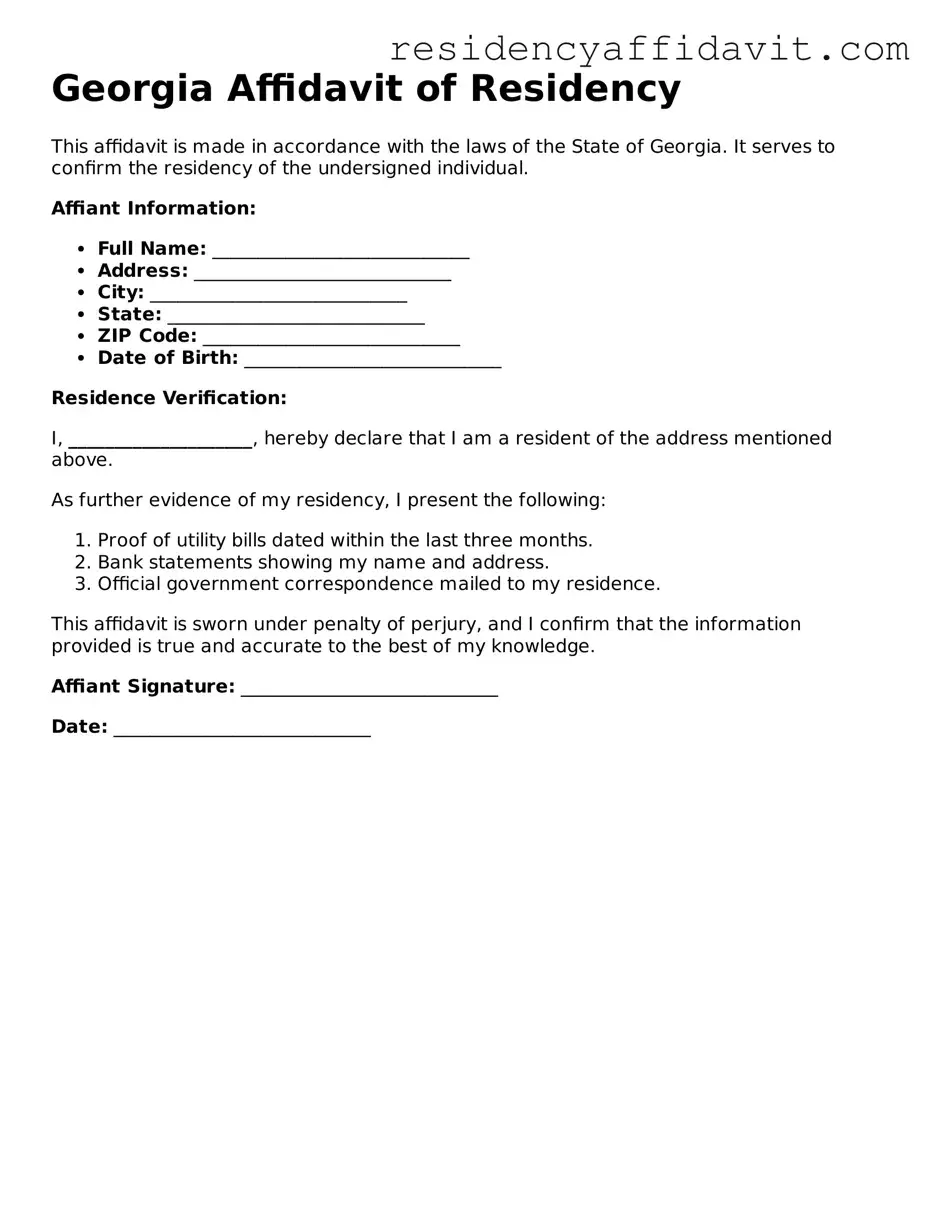Attorney-Approved Affidavit of Residency Document for Georgia
The Georgia Affidavit of Residency form is a legal document used to verify a person's residence within the state of Georgia. This form serves as an official declaration, often required for various purposes such as enrolling in schools or obtaining certain government services. Understanding its importance can help residents navigate their rights and responsibilities more effectively.
Get My Affidavit of Residency Online

Attorney-Approved Affidavit of Residency Document for Georgia
Get My Affidavit of Residency Online
Your form progress is not saved
Edit and save Affidavit of Residency online, ready to download.
Get My Affidavit of Residency Online
or
➤ Affidavit of Residency PDF Form
